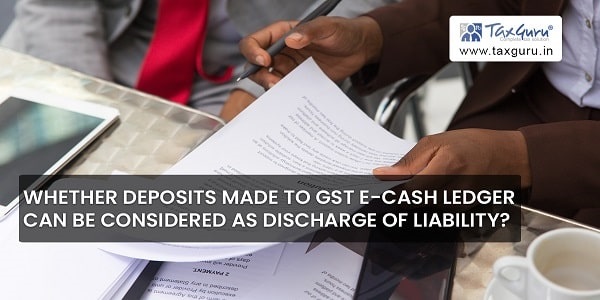Please refer to the case, Excise Appeal No.50646 of 2020 [SM] by the appellant, M/s. WMW Metal Fabrics Limited, requested the refund of the amount deposited in the PLA account which was not utilised to discharge the liability under the erstwhile Excise Act, the refund was denied as the time limit for the request to be made as expired according to the provisions.
The Tribunal concluded that the amount deposited in PLA doesn’t qualify as liability till it is utilised to discharge against the liability. Only the duty paid which is requested to be refunded, can be denied, considering the time limit for application of refund but not the amount lying in PLA account being unutilised by the appellant. As long as the amount available in the PLA account, it belongs to the appellant not to the Government. In that case, the provisions limiting the time for refund applications will not be applicable to the deposits unutilised in the PLA account.
With reference to the above case, one may argue that the cash deposited in the E-cash ledger cannot be considered as discharge of liability till it is utilised to discharge liabilities. This happens when the dealer makes the payment to the E-cash ledger and not utilising the cash to discharge the liability for various reasons.

To clarify the same, we will have a look at an explanation provided in the section 49 of CGST Act. According to the explanation, the date of credit to the account of the Government in the authorised bank shall be deemed to be the date of deposit in the electronic cash ledger. Based on this explanation, we can say that the date when the cash is credited in the electronic cash ledger is the date of credit to the account of the Government in the authorised bank.
We can conclude that when the amount is deposited in the E-cash ledger but the same is not utilised in the returns, the dealer will not be liable to pay interest. The amount deposited in the E-cash ledger can be considered as discharge of liability.
****
For clarifications to your GST queries (paid service only): Contact: uday.gstguide@gmail.com
Disclaimer: This article is only for the purpose of understanding the provisions of the Act, as known by the author. The author bears no responsibility on decisions taken by the readers whatsoever. E&OE.






EXCELLENT ARTICLE SIR. KEEP IT UP.
Thank you so much!